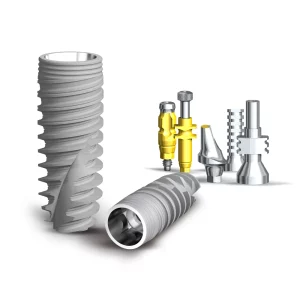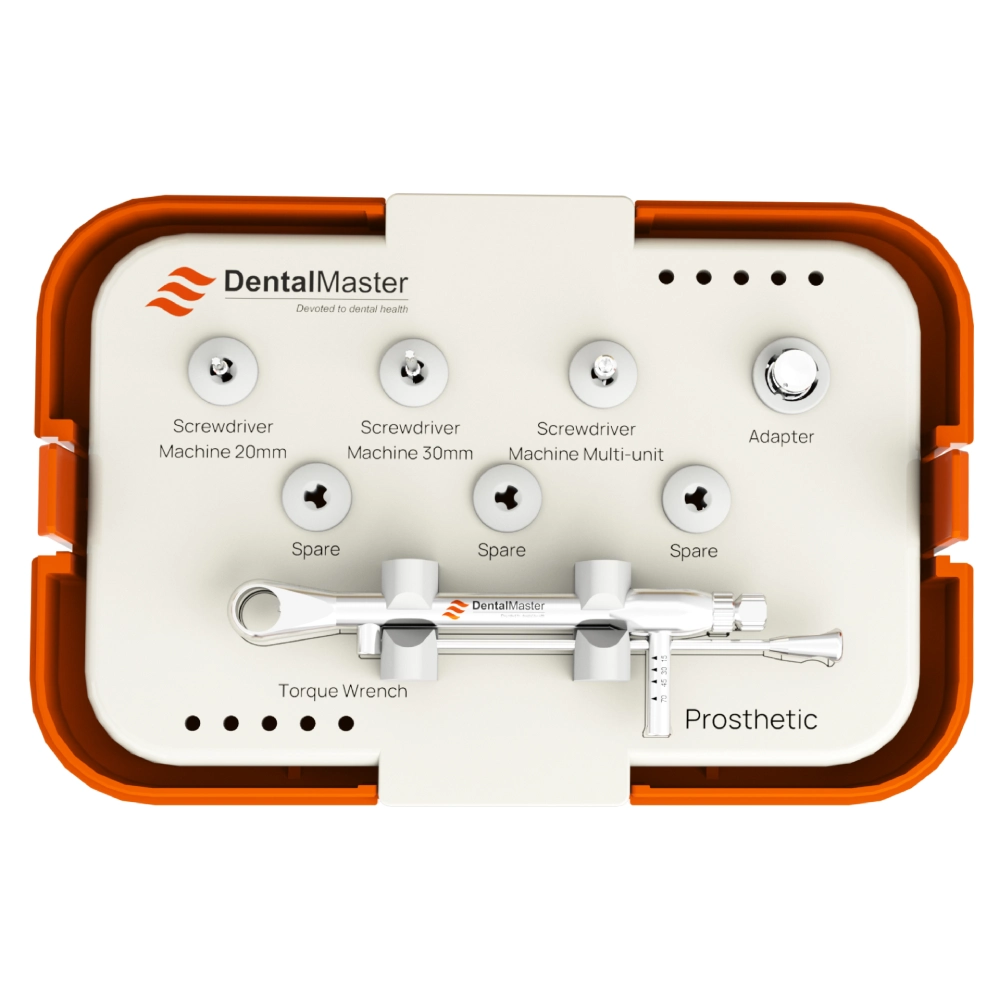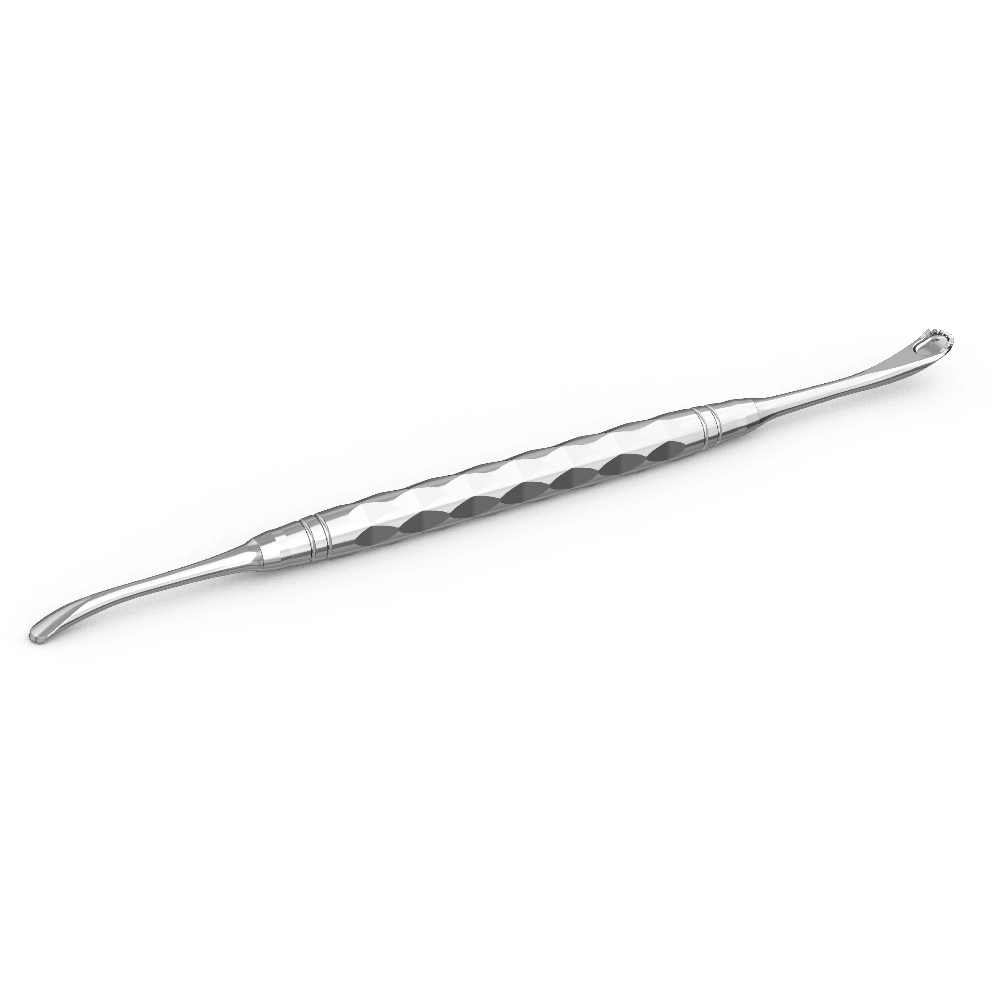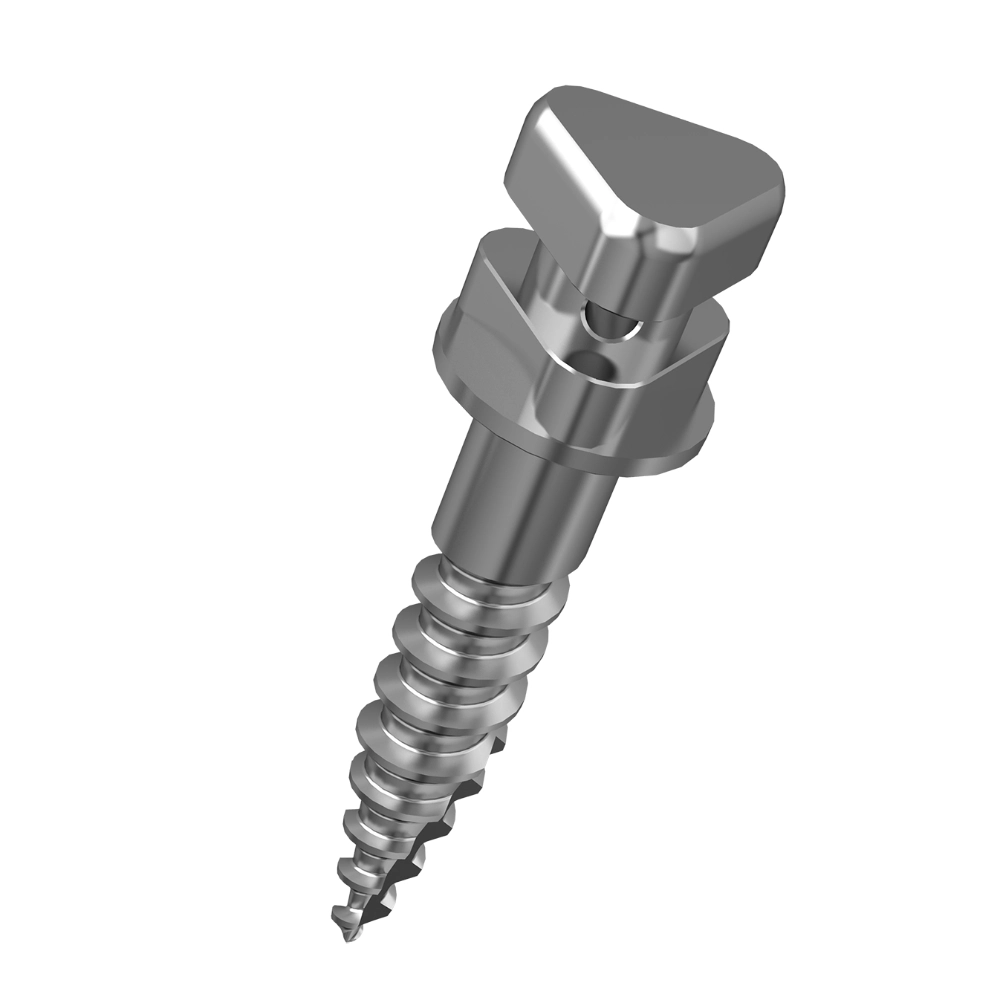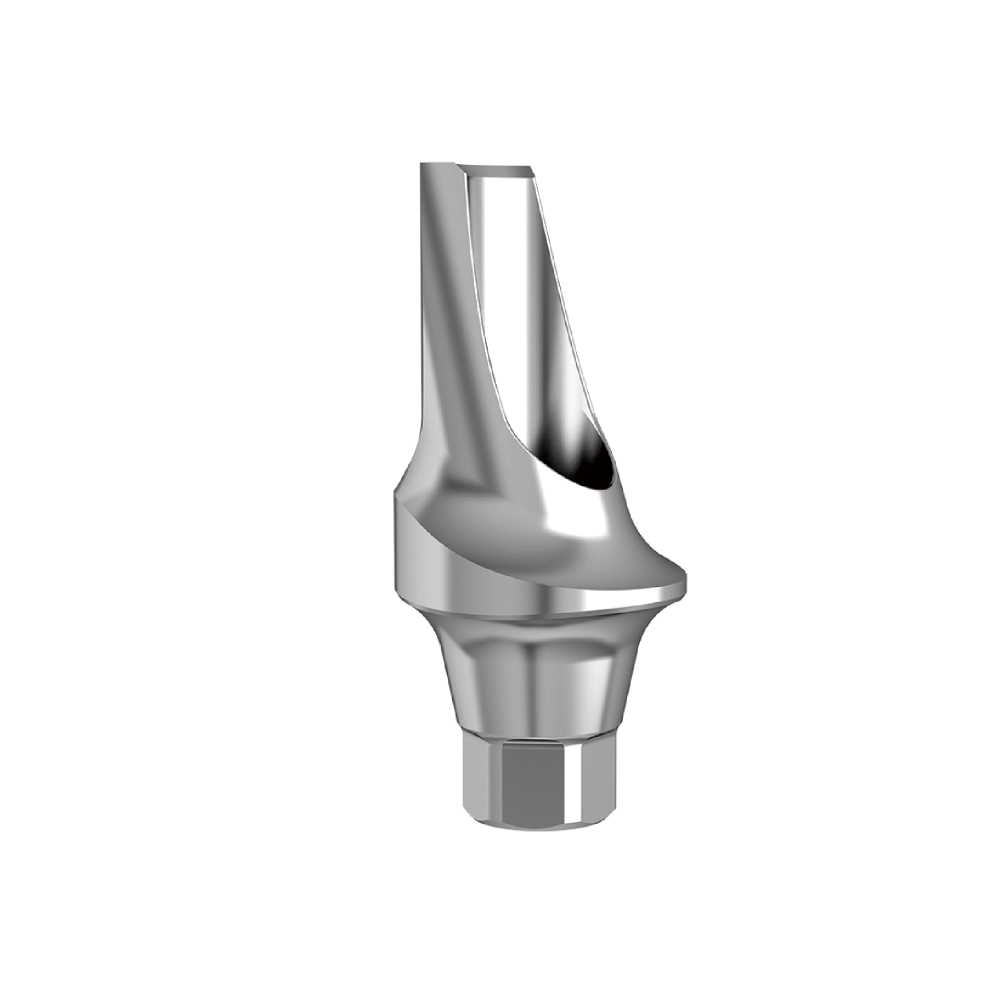
Dental implants have become one of the most effective and reliable solutions for replacing missing teeth, offering patients long-term benefits in both function and aesthetics. But who exactly performs the dental implant procedures? This is a crucial question for anyone considering implants, whether you are a dental clinic seeking reliable implant options or a distributor looking to stock the best products for your customers.
In this article, we’ll explore the various dental professionals who specialize in dental implant procedures, the importance of selecting the right implant manufacturer, and how choosing high-quality implants can significantly enhance both treatment outcomes and patient satisfaction. Whether you’re a dentist, a clinic manager, or a distributor, understanding who is involved in the process and how to choose the right products will help ensure the success of every dental implant procedure.
Introduction to Dental Implants
What Are Dental Implants?
Dental implants are artificial devices designed to support restorative components in a patient’s jawbone, serving as a long-term solution to replace missing teeth. By mimicking the root structure of natural teeth, they provide stable support, restoring chewing function, speech clarity, and facial aesthetics. Dental implants are typically made from materials such as titanium alloys or ceramics. Titanium alloys are widely used due to their excellent biocompatibility and high strength, while ceramics are favored for their aesthetic appeal and biocompatibility, especially in areas requiring high aesthetic demands. Based on design and application, implants are categorized into internal and external implants. Internal implants typically feature cylindrical or conical shapes that integrate with the jawbone, while external implants use external threads or other structures to enhance bone integration. The advantages of implants include providing superior stability, comfort, and ease of maintenance for the upper restorations. Compared to traditional dentures, implants offer a more natural oral experience, significantly improving the patient’s quality of life.
Benefits of Dental Implants
- Improved Quality of Life:
- Restores Chewing Function: Dental implants function like natural teeth, allowing you to enjoy food again and absorb a wider range of nutrients.
- Improves Speech: Missing teeth can affect speech, but dental implants help you speak clearly, boosting your confidence in communication.
- Boosts Confidence: A complete, beautiful smile makes you look more radiant and feel more confident in social interactions.
- Aesthetic Results Similar to Natural Teeth:
- Natural Appearance: Dental implants closely resemble natural teeth, achieving a lifelike effect.
- Custom Design: Tailored to match your face shape and tooth color, implants create a perfect smile just for you.
- Protects Oral Health:
- Prevents Tooth Shifting: Implants fill the gaps left by missing teeth, preventing neighboring teeth from shifting or tilting.
- Delays Bone Loss: Like tooth roots, implants stimulate the jawbone, preventing bone loss and maintaining facial structure.
- Protects Neighboring Teeth: Unlike traditional restoration methods, dental implants don’t require the grinding of adjacent teeth, offering better protection for your natural teeth.
- Durable, Cost-Effective:
- High Success Rate: With mature technology, the success rate of dental implants exceeds 95%.
- Long-Lasting: When properly maintained, dental implants can last decades or even a lifetime.
- Cost-Effective: While the initial cost may be higher, dental implants are more durable in the long run, offering better value for money.
In conclusion, dental implants are a safe, effective, and long-lasting dental restoration option that significantly enhances your quality of life, oral health, and self-confidence.
Who Performs Dental Implant Procedures?
Dentists Specializing in Dental Implants
Dental implant specialists focus on providing patients with natural and stable tooth replacement solutions through advanced implant techniques. They not only possess comprehensive knowledge of oral medicine but also have a deep professional background in dental implants and rich clinical experience. To become a dental implant specialist, they typically need to complete additional specialized training and obtain relevant certifications, signifying that their professional abilities and technical expertise in the field of dental implants meet industry-recognized high standards.
During the implant installation process, dental implant specialists play a crucial role. They first conduct a comprehensive evaluation of the patient’s oral condition, including the cause of tooth loss, the structure and density of the jawbone, to determine the most suitable implant solution for the patient. The doctor then carefully plans the position, angle, and depth of the implant to ensure stable osseointegration with the jawbone. During the surgery, the doctor uses refined surgical techniques and rigorous procedures to precisely place the implant into the jawbone. Post-surgery, they closely monitor the patient’s recovery and provide necessary guidance and advice to ensure the successful healing and long-term stability of the implant.
Dental implant specialists are dedicated not only to restoring the patient’s tooth function and aesthetics but also to enhancing their quality of life. Through personalized treatment plans and meticulous care, they help patients regain confidence and enjoy a healthy and beautiful life.
Oral Surgeons and Dental Implants
Oral surgeons are specialists in the field of oral medicine who focus on complex surgeries involving the structures of the mouth, such as teeth, jawbones, and soft and hard tissues. Among these, dental implant surgeries are a common challenge faced by oral surgeons, especially in cases requiring bone grafting, sinus lift, and other complex procedures, where their expertise and skills become particularly important.
Role of Oral Surgeons in Complex Implant Surgeries
- Pre-surgical Assessment and Planning: The oral surgeon first conducts a comprehensive evaluation of the patient’s oral condition, including the height, width, and density of the jawbone, as well as the health of adjacent structures. Using imaging techniques such as X-rays and CT scans, the surgeon can accurately measure and plan the position, direction, and depth of the implants to ensure a high success rate and long-term stability of the implants.
- Bone Grafting and Augmentation Techniques: For patients with insufficient jawbone volume, oral surgeons may use bone grafting techniques to increase bone volume. This can include autogenous bone grafting, allografts, or synthetic bone materials. In addition, the surgeon may use various bone augmentation techniques such as bone compression, osteotomy, and guided bone regeneration (GBR) to optimize the environment for implant placement.
- Sinus Lift Surgery: When there is insufficient bone volume in the posterior maxilla (upper jaw) area, the oral surgeon may perform a sinus lift to increase the bone height. This technique can be either open or closed, and the surgeon will choose the appropriate method based on the patient’s specific condition. During the procedure, the surgeon carefully separates the maxillary sinus membrane and lifts it, then places bone grafting material or implants.
- Implant Placement and Stability Assurance: After completing the necessary bone augmentation and sinus lift procedures, the oral surgeon will accurately place the implant into the planned position. They will ensure the initial stability of the implant, which is crucial for the successful integration of the implant with the jawbone.
- Postoperative Care and Follow-up: After surgery, the oral surgeon will provide detailed postoperative care instructions, including advice on diet, oral hygiene, and medication. Additionally, the surgeon will schedule regular follow-up appointments to monitor the healing process of the implant and the patient’s overall oral health.
How to Choose an Oral Surgeon for Special Surgeries
- Professional Qualifications and Experience: It is crucial to choose an oral surgeon with extensive experience and professional qualifications. Patients can assess the surgeon’s professional level by checking their education, title, continuing education background, and certifications. Additionally, learning about the surgeon’s successful cases and patient reviews in the field of dental implant surgery is also important.
- Technology and Equipment: Advanced surgical techniques and equipment are key to ensuring the success of the surgery. Patients should inquire whether the surgeon uses the latest surgical technologies and equipment and understand their advantages and applicability.
- Communication and Trust: Good doctor-patient communication is a vital factor for the success of the surgery. Patients should choose a surgeon who listens patiently to their concerns, provides detailed explanations, and offers recommendations. At the same time, patients should trust the surgeon’s professional judgment and treatment plan.
Prosthodontists and Dental Implants
In the entire dental implant treatment process, oral restoration specialists play a critical role, especially during the recovery phase of dental implants. They are responsible not only for designing and customizing the restorative parts of the implant, such as crowns and bridges, but also for ensuring the functionality and aesthetics of the implant, providing patients with a satisfactory oral restoration outcome.
Role of Restoration Specialists in the Implant Recovery Phase
The recovery phase of a dental implant is a complex and delicate process that requires restoration specialists to have profound professional knowledge and extensive clinical experience. After the implant has successfully integrated with the jawbone, the restoration specialist takes over the subsequent treatment. They begin by conducting a comprehensive assessment of the patient’s oral condition, including the stability of the implant, the health of the surrounding tissues, and the occlusal relationship. Based on these evaluations, the restoration specialist develops a personalized restoration plan to ensure the maximum functionality and aesthetic recovery of the implant.
Designing and Customizing the Restorative Parts of the Implant
When designing and customizing the restorative parts of the implant, the restoration specialist considers multiple factors, such as the patient’s tooth shape, color, bite habits, and facial aesthetics. They use advanced digital technology and materials, such as CAD/CAM technology and all-ceramic materials, to create implants that perfectly match the natural teeth. These restorations not only have excellent biocompatibility and durability but also blend seamlessly in form and color with the patient’s natural teeth, achieving a natural and aesthetically pleasing result.
Ensuring the Functionality and Aesthetics of the Implant
Restoration specialists play a key role in ensuring both the functionality and aesthetics of the implant. Through precise measurements and customization, they ensure that the implant restores the patient’s chewing ability while maintaining oral comfort and stability. In terms of functionality, the restoration specialist focuses on the occlusal relationship, support, and stability of the implant, ensuring that the patient can chew food with ease and enjoy eating.
For aesthetics, the restoration specialist places great emphasis on detail and personalization. They carefully design and craft the dental crown and bridge according to the patient’s facial features and aesthetic needs, ensuring a natural, harmonious, and beautiful restoration. These restorations not only boost the patient’s confidence and social ability but also allow them to feel more confident and joyful in daily life.
Why Dental Implant Manufacturers Matter
Choosing the Right Implant Manufacturer
In dental implant surgery, selecting the right implant manufacturer is crucial for ensuring the success of the procedure and long-term results. The quality of the implants, their compatibility, as well as the manufacturer’s technical support and after-sales service are all important factors that influence the decision. Among various manufacturers, DentalMaster stands out with its excellent product quality and comprehensive service, making it the trusted choice for both dental professionals and patients.
Key Factors to Consider When Choosing an Implant Manufacturer
- Product Quality: The quality of the implants directly affects their long-term stability and the patient’s oral health. High-quality implants should be made from materials with good biocompatibility, excellent mechanical properties, and corrosion resistance. When selecting a manufacturer, it is important to carefully review the materials, manufacturing processes, and quality control procedures of their products.
- Certifications and Compliance: Ensure that the implant manufacturer has received certifications from relevant international standards and regulatory bodies, such as ISO, CE, and FDA. These certifications demonstrate that the manufacturer adheres to stringent quality and safety standards, providing safe implant solutions for patients.
- Technical Support and Training: A reputable manufacturer should offer comprehensive technical support and training programs to help dental professionals master the latest implant techniques and procedures. This includes product usage training, surgical guidance, and post-operative care recommendations, ensuring high success rates for implant surgeries and patient satisfaction.
- Accessories and Compatibility: Choose a manufacturer that offers a wide range of accessories and implants with good compatibility to meet the personalized needs of different patients. This includes implants of various sizes, shapes, and materials, as well as components such as abutments and healing caps, and compatibility with other brands and systems.
DentalMaster: A Reliable dental Implant Manufacturer
DentalMaster, as an industry-leading implant manufacturer, is committed to providing high-quality dental implants and accessories, as well as exceptional technical support and after-sales services. Its products are made from advanced bioactive materials and undergo strict quality control processes to ensure that each implant meets international standards and patient expectations.
The DentalMaster implant system offers excellent stability and biocompatibility, meeting the needs of different patients. Additionally, the company provides a wide selection of accessories, ensuring compatibility with various brands and systems. Furthermore, DentalMaster has a professional technical support team that offers comprehensive training, guidance, and after-sales services to dental professionals, ensuring the success of implant surgeries and patient satisfaction.
Choosing the Right Implant for Your Practice
In dental practice, selecting the right implant is crucial for ensuring the success of the surgery, improving patient satisfaction, and maintaining the clinic’s reputation. The choice of implant should be based on a comprehensive consideration of factors such as patient needs, the complexity of the surgery, implant configuration, type, material, and design.
Factors to Consider When Choosing Dental Implants
- Patient Needs:
The patient’s age, health condition, oral condition, and personal preferences are key factors to consider when choosing an implant. For example, younger patients may prefer implants with better aesthetic results and long-term stability, while older patients may focus more on the convenience and comfort of the implant. - Surgical Difficulty:
The difficulty of the surgery depends on the patient’s jawbone condition, the implant site, and the number and type of implants needed. For complex cases, implants with stronger support and better biocompatibility may be required to ensure the success of the surgery and the long-term stability of the implants. - Configuration:
The configuration of the implant includes factors such as the implant’s length, diameter, thread design, and connection method. These configuration factors directly impact the implant’s stability and biomechanical performance. When choosing an implant, the configuration should be optimized based on the patient’s specific condition and surgical needs. - Type, Material, and Design of the Implant:
Implants come in different types, such as one-piece, two-piece, and multi-piece designs. The materials used include titanium alloy, pure titanium, and ceramic, while the design refers to the shape and surface treatment of the implant. These factors affect the implant’s biocompatibility, stability, and lifespan. Therefore, when choosing an implant, it is important to consider the patient’s oral condition, surgical requirements, and the implant’s performance characteristics.
Key Features of High-Quality Dental Implants
- Premium Materials:
High-quality implants should be made from materials with excellent biocompatibility, such as titanium alloys or pure titanium. These materials have good mechanical properties and corrosion resistance, ensuring the implant’s long-term stability and the patient’s oral health. - Precision Design:
Precision design is another important characteristic of high-quality implants. The shape, thread design, and connection method of the implant should be carefully calculated and tested to ensure good biomechanical performance and stability. Additionally, the surface treatment of the implant is a critical factor in its biocompatibility and osseointegration ability. - Long-Term Stability:
A high-quality implant should have long-term stability, able to withstand the test of time. This means the implant should have good osseointegration, resistance to loosening, and fatigue resistance to ensure its long-term stability and longevity in the oral environment.
For both dentists and patients, choosing high-quality implants is crucial. For dentists, high-quality implants improve the success rate of surgeries and reduce the risk of postoperative complications, thereby maintaining the clinic’s reputation and patient trust. For patients, high-quality implants provide better aesthetic results, comfort, and long-term stability, which improves their quality of life. Therefore, when selecting implants, it is essential to consider various factors to ensure the best treatment plan for the patient.

